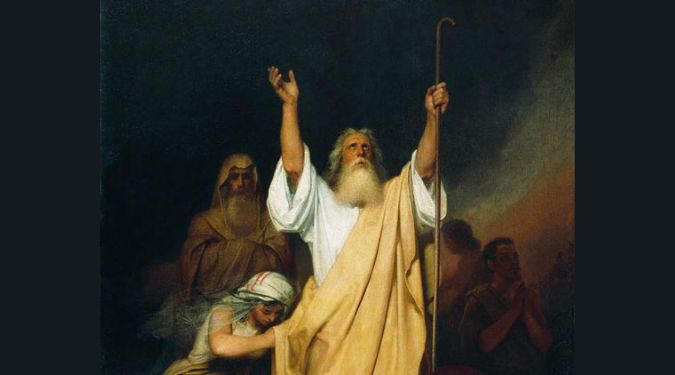Several years ago my brother Carl, a drummer, announced that he was forming a new band. When I asked him what he was going to name his new group, he said, “Forty Days.” “Hmm,” I replied, “How did you come up with that name?” He responded tersely, “It’s biblical.”
I have always had an interest in biblical things, but at that moment I could only think of one or two bible stories that had anything to do with “forty days.” So, my interest piqued, I found eleven stories in the Bible concerning “forty days,” each having some good point for reflection.
The number forty had a special significance to the Hebrew authors of the Bible. For them, it connoted a time of testing, trial or preparation. The number forty also signified a “long time”.
Starting at the beginning of the Old Testament, Noah spent forty days in the Ark contemplating God’s awesome power in the floodwaters and His determination to cleanse and save His creation (Gen 6-9).
Joseph mourned the death of his father Jacob for forty days while his body was being embalmed. The Spirit of God must have been working through Joseph’s grief, however, because upon burying his father, he immediately offered his treacherous brothers his forgiveness (Gen 50:1-21).
On two occasions Moses spent forty days and forty nights on Mt. Sinai in the presence of God, receiving His covenant. He even fasted during both of his sojourns on the mountain (Ex 24:18, 34:28, Deut. 9:9,18).
Many years later, Moses sent twelve spies out into the promised land of Canaan. There they spent forty days savoring the lush land that God had promised them in His covenant (Num 13:25).
After killing the prophets of Baal on Mt. Carmel, the prophet Elijah ran from the evil Queen Jezebel for forty days before reaching Mt. Horeb (Sinai). There he heard the voice of God in a quiet, gentle breeze (1 Kings 19:8).
God gave the people of Nineveh forty days to repent of their sins. They repented after three days however, and spent the rest of the forty days praying and doing penance (Jonah 3:4).
And finally, the prophet Ezekiel spent forty days lying on his side, “bearing the sins of the House of Judah (Ezk 4:4-8).”
Moving on to the New Testament, we find that Mary, following the Law of Moses, went to the Temple forty days after the birth of Jesus to complete the rites of purification (Lev 12:1-5, Luke 2:22-40). As most new parents know, the first forty days of life with a newborn are joyful, yet also a time of great adjustment and change, and this was undoubtedly true for Joseph, if not for Mary.
Jesus himself spent forty days fasting and praying in the desert after His baptism, after which He returned to Galilee to begin his ministry “in the power of the Spirit” (Luke 4:1-4).”
After His Resurrection and before his Ascension into heaven, Jesus spent forty days with his disciples, teaching them about the Kingdom of God (Acts 1:1-11).
So, like the prophets of old, we too can spend forty days repenting of our sins and savoring God’s covenant promises while fleeing from evil, forgiving others, and meditating upon God’s absolute determination to cleanse and save us. We too, like Mary and the apostles, can spend forty days adjusting our lives according to His presence, attending to His words, fasting to strengthen our wills against sin and doing works of charity to help those in need.
Have a blessed forty days!




My husband is Greek Orthodox, and their tradition is to bring newborn babies to the church for a forty day blessing. They also observe a forty day memorial service for those who die.
Definitely biblical!